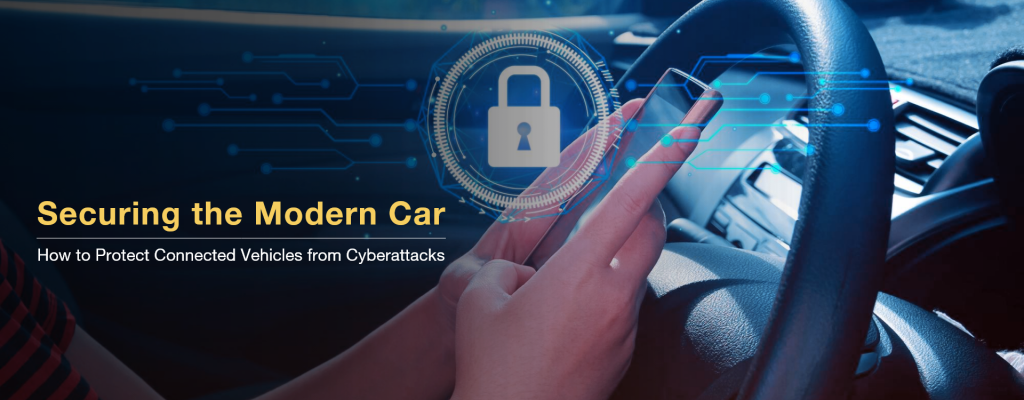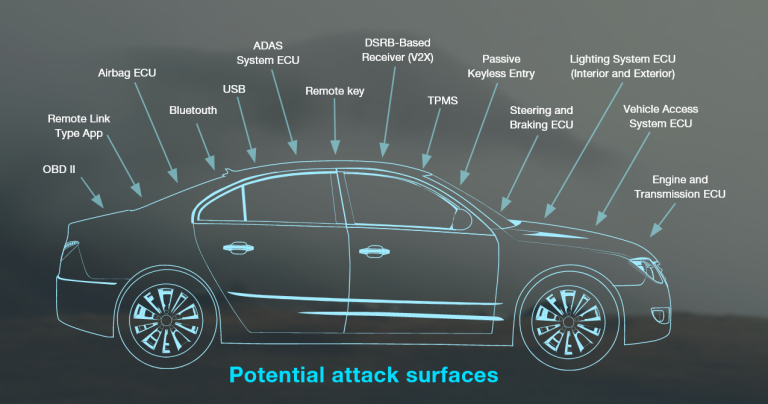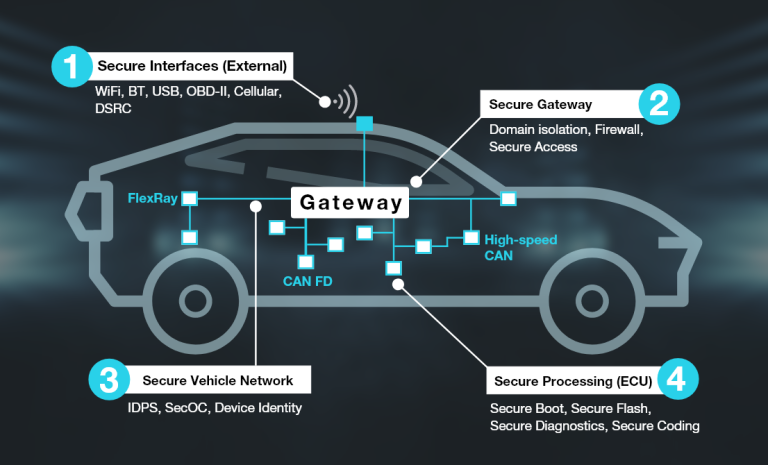
Posted On May 05 2024 | 15:06
As our world becomes increasingly connected, so do our vehicles. Modern cars are no longer just modes of transportation; they are smart machines that bring convenience and entertainment to the driver. However, this connectivity also exposes vehicles to potential security risks and cyber threats. In this article, we will explore the importance of cybersecurity for connected vehicles and discuss the measures taken to safeguard them from hackers.

The potential dangers of vehicle cybersecurity breaches have been highlighted by several high-profile incidents in recent years. One such example is the Jeep Cherokee hack in 2015, where security researchers demonstrated the ability to remotely control a vehicle’s steering, brakes, and transmission. This incident raised alarms across the automotive industry and led to a heightened focus on cybersecurity for connected vehicles.
Another notable case is the Tesla Model S hack in 2016. Chinese researchers were able to remotely access the vehicle’s brakes, door locks, and dashboard displays. Although Tesla quickly released a software update to address the vulnerability, these incidents serve as a reminder of the constant threat posed by hackers and the need for proactive cybersecurity measures.
Secure communication protocols are vital for safeguarding connected vehicles against hackers. Encryption plays a crucial role in securing data transmitted between various components of the vehicle’s systems, such as the infotainment system, sensors, and electronic control units (ECUs). By encrypting data, hackers are unable to intercept and manipulate it, ensuring the integrity and confidentiality of the vehicle’s communication networks.
In addition to encryption, secure authentication processes are essential to prevent unauthorized access to a vehicle’s systems. Strong authentication mechanisms, such as two-factor authentication and digital certificates, can help ensure that only authorized entities can communicate with the vehicle and access its sensitive functions.
Securing the software and firmware of connected vehicles is another critical aspect of cybersecurity. The increasing complexity of automotive software systems makes them vulnerable to exploitation by hackers. Automakers are adopting rigorous software development practices, such as secure coding standards and regular vulnerability assessments, to minimize the risk of vulnerabilities being introduced into the software.
Additionally, over-the-air (OTA) updates are becoming increasingly common in the automotive industry. These updates allow manufacturers to remotely deploy software patches and security updates to connected vehicles. By promptly addressing discovered vulnerabilities and deploying patches through OTA updates, automakers can mitigate the risk of cyberattacks.
Connected vehicles generate and collect vast amounts of data, ranging from personal information to insights about driving behavior and vehicle diagnostics. Protecting this data is crucial, as it can be valuable to hackers for various malicious purposes, such as identity theft or targeted attacks. Automakers are implementing data protection measures, including data encryption, access controls, and secure storage, to safeguard vehicle data from unauthorized access.
Furthermore, ensuring the privacy of vehicle owners and occupants is essential. Strict privacy policies, transparent data collection practices, and informed consent mechanisms help build trust between consumers and automakers. By respecting privacy rights and providing clear guidelines on data usage, automakers can foster a sense of security and confidence in connected vehicles.
Cybersecurity is not just a technical challenge; it is a cultural shift that needs to permeate the entire automotive industry. Automakers are recognizing the importance of instilling a cybersecurity mindset throughout their organizations. This includes training employees on cybersecurity best practices, establishing incident response plans, and fostering collaboration with external cybersecurity experts.
Government regulations and industry standards also play a crucial role in driving cybersecurity improvements in the automotive sector. Governments around the world are developing frameworks and guidelines to ensure the security of connected vehicles. Compliance with these regulations and adherence to industry standards help create a unified approach to cybersecurity and ensure consistent protection across different vehicle manufacturers.

As connected vehicles become more prevalent on our roads, ensuring their cybersecurity is of utmost importance. Hackers present a constant and evolving threat, and the automotive industry must remain vigilant in defending against potential attacks. By implementing robust cybersecurity measures, such as secure communication protocols, software and firmware security, data protection, and fostering a cybersecurity culture, automakers can safeguard connected vehicles and build trust among consumers.
Cybersecurity on wheels is not just a buzzword; it is a critical aspect of building trust and confidence in the future of connected vehicles. As technology continues to advance, so must the measures taken to protect our vehicles from cyber threats. By staying proactive and embracing a cybersecurity-first approach, the automotive industry can ensure that our journeys on the road remain safe and secure in the digital age. Talk to our experts to know how we help you make your connected vehicles secure from cyber threats.
